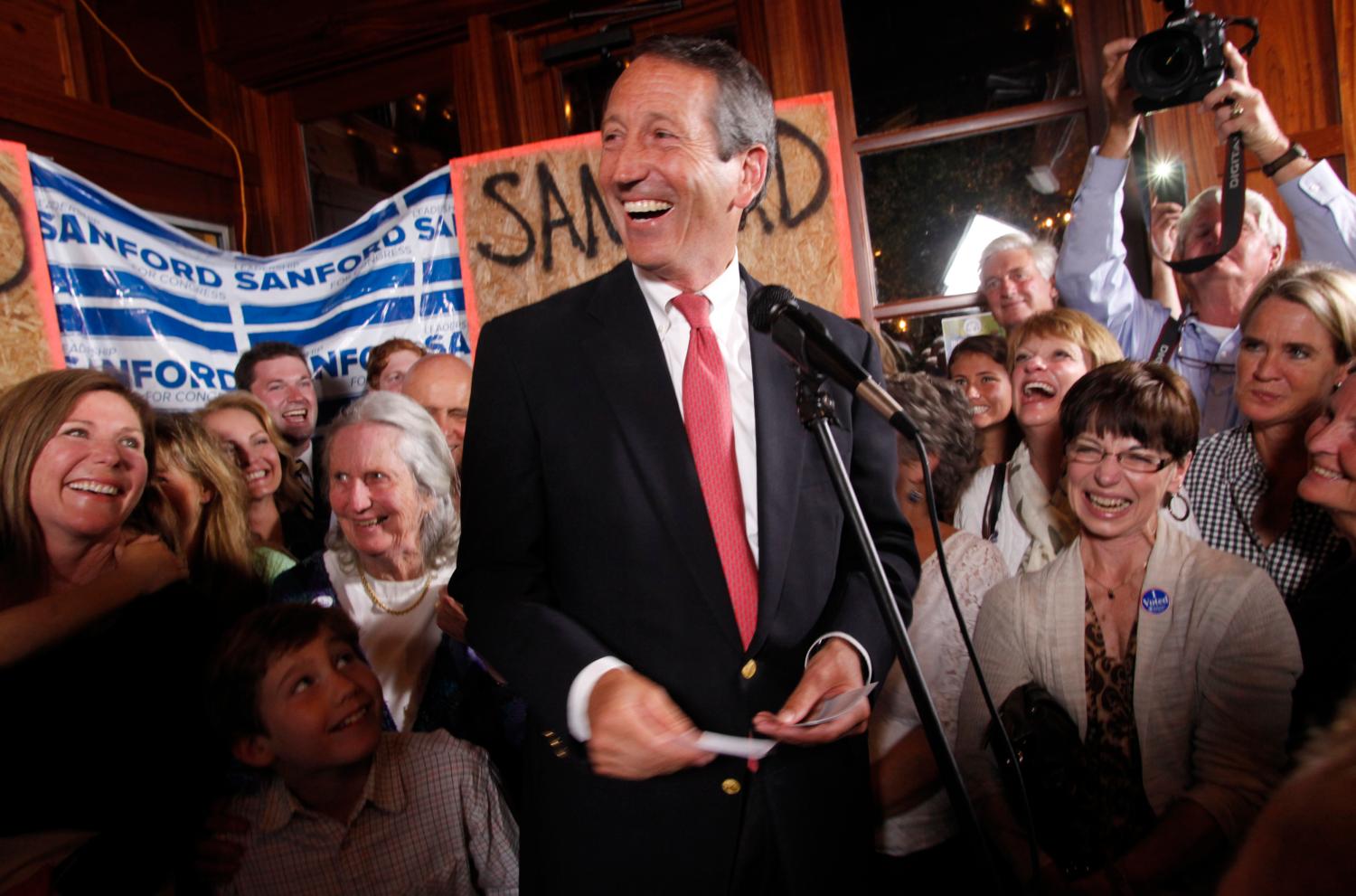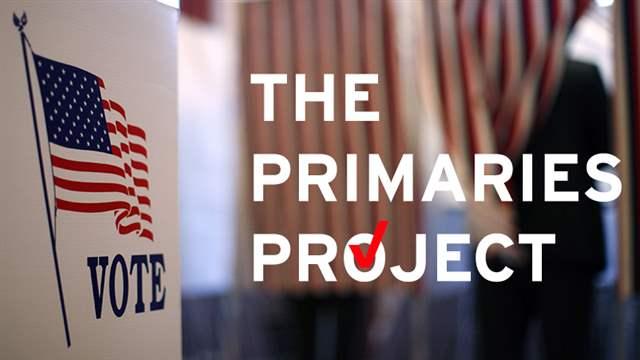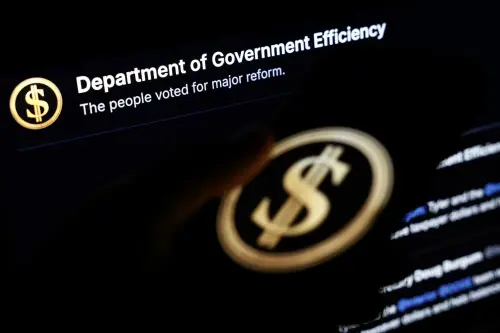The following is the fourth section of “Political polarization and congressional candidates in the 2018 primaries,” a report from The Primaries Project at Brookings.
In order to get a sense of how the primaries might impact what happens in the next Congress, we coded what the primary candidates were talking about and, broadly, how they were positioning themselves. The first thing to note is that, as in 2016, primary candidates in each party gave priority to different issues. For instance, as Table 9 indicates, health care is the number one issue for Democrats and number four for Republicans among the top issues primary candidates discussed. Democrats hardly mention business regulations or the national debt, and Republicans don’t mention climate change or PreK-12 education very often. And Republicans mention climate change so infrequently (only 16 percent of the time), that the issue doesn’t even appear in their list of top five issues.
Table 9: Top 5 issues mentioned by House primary candidates, 2018
| Democrats | Republicans |
|
Health care/Affordable Care Act (79.7%) |
Federal tax policy (67.0%) |
|
Climate change (62.6%) |
Immigration (66.2%) |
|
Gun control/Second Amendment (60.6%) |
Gun control/Second Amendment (60.6%) |
|
Immigration (60.4%) |
Health care/Affordable Care Act (60.1%) |
|
Federal education (PreK-12) (58.4%) |
Business regulations (57.0%) |
As in both 2014 and 2016, health care, especially the Affordable Care Act, was a hot topic in both parties’ primaries. Not surprisingly, Democrats support the ACA and Republicans are still opposed to it. What has changed from 2016, however, is the number of Democrats who provide a complicated/complex or unclear position on the issue. The best explanation for this increase is that, compared to 2016, the ACA seems here to stay. In place of discussing it, Democrats have moved on to considering other options that may have more appeal, such as Medicare-for-All.
Medicare-for-All is a new issue in 2018, driven primarily by Bernie Sanders and his supporters, as the following table indicates. Many congressional incumbents signed on to a Medicare-for-All bill proposed by Sen. Sanders in 2017—a mark of how appealing the issue is to Democrats. However, for many Democrats, the bill is more aspirational than realistic, especially given that no serious progress can be made on it until Democrats control the presidency and both houses of Congress.1 Nonetheless, this topic has become a rallying cry of the progressive faction in the Democratic Party—meaning that it will become a serious part of the health care debate in the future
It is not surprising that tax policy is the number one issue for Republican primary candidates, given that the Tax Cuts and Jobs Act is President Trump’s biggest domestic policy achievement. Nor is it surprising that attitudes on this topic differ dramatically between the parties, with Democrats supporting tax increases on the wealthy and Republicans opposing raising taxes. This could mean that a Democratic takeover in the House of Representatives will result in efforts to repeal the tax breaks in the Trump tax bill, given its unpopularity among not just Democrats, but Independents as well.2
Immigration reform is the other big issue candidates discussed in both party’s primaries. Led by the president, slightly more than 50 percent of the Republican primary candidates oppose comprehensive immigration reform and favor measures designed to get tough on immigration, such as the building of a wall along the U.S.-Mexico border. Slightly more than 50 percent of Democratic candidates support comprehensive immigration reform; their positioning on the issue has hardened since 2016 when only 31 percent supported comprehensive immigration reform and more than half of the candidates avoided the issue. In addition to health care, this is a second area where the new progressive energy in the Democratic Party is having an effect. Fueled by opposition to Trump’s border wall, his position on DACA, and his administration’s policies regarding children at the border (particularly child separation policies), Democratic support of immigration reform has increased.
Slightly more than 50 percent of Democratic candidates support comprehensive immigration reform; their positioning on the issue has hardened since 2016 when only 31 percent supported comprehensive immigration reform and more than half of the candidates avoided the issue.
A new theme that emerged in this year’s Democratic primaries was the call to abolish Immigration and Customs Enforcement (ICE)—the government agency that regulates what happens at the borders and has been in the headlines recently because of the controversies regarding the order (since revoked) to separate parents from children. As with Medicare-for-All, it’s not at all clear what this means for the future of the Democratic party. Republicans have jumped on the trend as another indication that Democrats are in favor of open borders. The Democratic leadership in Congress, however, has kept its distance from the effort, and few people really expect ICE to be abolished, even under a Democratic Congress with a Democratic president. But the energy around this issue effectively guarantees that at some point in the future, Democrats will have to come up with a reform package on the immigration agency. (We do not have data on this because the proposal emerged midway through the primary season.)
Gun control has generated a lot of activity in this election cycle as well. In previous years, this issue has seen a great deal of attention among Republican candidates, but very little from Democrats. For example, just two years ago, only one-in-three Democrats weighed in on this topic. This cycle, however, three-in-five Democrats have taken positions, with over 50 percent of Democrats supporting increased calls for gun control.
Why might this be the case? Increased calls for gun control may have been caused by the Marjory Stoneman Douglas High School shooting in Parkland, Fla., which occurred in February 2018, right before the primary cycle, and led to the nationwide March for Our Lives the following month. Another reason could be the increased relevance of Moms Demand Action for Gun Sense in America in primary elections. Similar to how the National Rifle Association “grades” candidates, Moms Demand Action provided “distinctions” to candidates who support their agenda, which was new for the 2018 cycle. Many Democrats boasted about garnering this pseudo-endorsement, likely helping this issue see increased salience this election cycle.
In addition to those issues that were most frequently mentioned, we also coded for many others—some were mentioned by candidates in both parties; others were ignored by one party or the other. (Details on the comprehensive list of issues can be found in the Appendix.) For instance, half of all candidates in both parties mentioned the issue of abortion on their websites, with Republicans supporting the pro-life position and Democrats supporting the pro-choice position. And while more Democratic candidates than Republican candidates talked about PreK-12 education, the Democrats were clearly supportive of more federal proposals while the Republicans were supportive of local solutions and opposed federal interventions such as the Common Core.
Democrats supported many issues that Republicans ignored. For instance:
- Nearly half of all Democrats supported raising the minimum wage while the vast majority of Republican candidates don’t mention the issue.
- On Social Security, nearly half of all Democratic primary candidates call for protecting the status quo, while more than three quarters of Republicans don’t mention the issue.
- A plurality of Democrats support same-sex marriage rights on their website, while the vast majority of Republican candidates ignore the issue, even though we coded for a category called “supports the traditional family.”
- A third of Democrats called for major criminal justice reform, while an overwhelming number of Republicans ignored the issue.
- More than 60 percent of Democratic candidates called for measures to combat climate change, while more than three quarters of Republicans did not mention the issue at all —positions similar to those we found in 2016.
- Just under 40 percent of all Democratic candidates called for reform of campaign finance laws, while almost no Republican candidates even mentioned the issue.
Similarly, Republicans supported some issues that Democrats ignored. For instance:
- About half of all Republican candidates supported cutting business regulations and “red tape,” but over three quarters of the Democrats didn’t even mention these issues.
- About half of the Republican primary candidates called for lowering the debt, whereas over three quarters of the Democratic candidates don’t even mention the issue.
It is equally interesting to understand what the primary candidates were not talking about.
- For instance, very few candidates in either party talked about dealing with terrorism. While Republicans were somewhat more likely to call for increased American intervention to combat terrorism, the numbers were small on both sides.
- Very few candidates in either party mentioned legalization of marijuana on their websites; Democrats were more supportive of the measure than Republicans, but less than 25 percent of the candidates mentioned their support.
- Less than 25 percent of Democrats even mentioned defense spending. On the Republican side, less than 50 percent opposed reductions in military spending.
- And no one wanted to wade into the big issue that has gripped Washington, D.C. for so long: Russia. Fewer than one–in-eight candidates in both parties even mentioned the issue, and those who did were overwhelmingly on the side of saying that Russia is a political enemy of the United States.
- Furthermore, virtually no candidates in either party mentioned the investigation of Donald Trump. Democrats seem to have gotten the message from their leadership to stay away from the issue, and Republicans, obviously, have no incentive to dwell on their president’s troubles.
These results are similar to what we found in 2014 and 2016. In 2014, we were surprised to find that, despite a lot of attention from Washington on the issues of National Security Agency (NSA) data collection, the Benghazi tragedy, and the Keystone XL Pipeline, most primary candidates stayed away from those topics. We found similar results in 2016. In spite of the fact that Hillary Clinton was running for president, while the Republican presidential candidates spent a great deal of time making an issue of her handling of the Benghazi incident, virtually none of the congressional candidates mentioned that issue. The candidates in both parties also ignored privacy concerns around data collection by the NSA. And, for the most part, they ignored terrorism and defense spending issues—although Republican candidates were more likely than Democratic candidates to take positions.
These discrepancies may reflect the fact that these issues are complex and often outside the comfort zone of congressional challengers. It may also reflect the fact that candidates felt these issues were not likely to influence or mobilize voters at the congressional level.
Continue to the conclusion of The 2018 Primaries Project report on candidates.
-
Footnotes
- See: https://www.nytimes.com/interactive/2017/09/13/us/sanders-medicare-for-all-plan-support.html and https://www.politico.com/story/2017/09/13/bernie-sanders-single-payer-democrats-medicare-242616.
- Sahil Kapur and Joshua Green, “Internal GOP Poll: We’ve lost the messaging battle on Tax Cuts,” Bloomberg, September 20, 2018.
The Brookings Institution is committed to quality, independence, and impact.
We are supported by a diverse array of funders. In line with our values and policies, each Brookings publication represents the sole views of its author(s).






